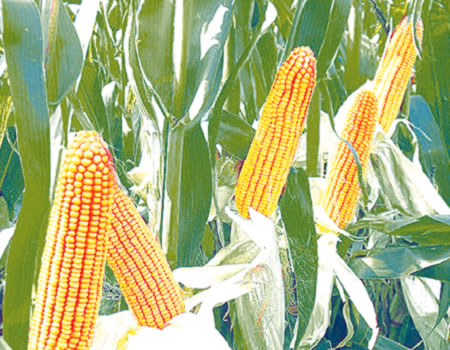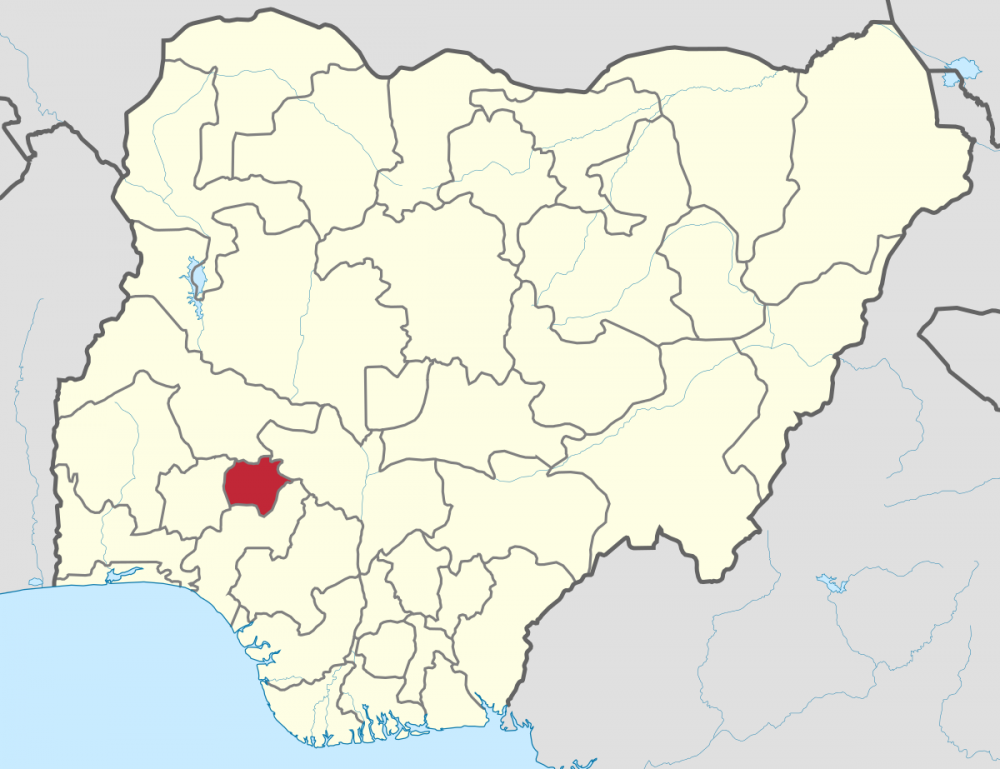Maize Producers Association Begins Loan Recovery Process From Its Members
The Maize Association of Nigeria (MAAN) has begun nationwide strategic meetings with maize farmers and stakeholders on loan recovery from Central Bank of Nigeria anchor borrowers.
>National President, Dr. Bello Abubakar, who led a team of other officials, began the meeting with maize farmers from the south-south and south-east geopolitical zones of the country, in Port Harcourt, in Rivers State, Southern Nigeria.
Addressing the farmers and stakeholders, Dr Abubakar said the purpose of the meeting was to review the impact of the loan on food security, deliberate on loan repayment strategies and the way forward for corn growers.
"We must ensure that we have taken all the necessary actions and measures to make the farmers who took out these loans repay"
"That is why we have decided to tour the 36 states of the country starting with the South-South and the South-East to come together and meet with our stakeholders in order to discuss, deliberate and propose a very concrete to this problem, how are we going to get these farmers to repay these loans"
"We know there are challenges, but the loan is a loan, the loan is not a grant, the loan is not a grant, so we need to follow these farmers to make sure that they are repaying this loan and that is why we are here"
While highlighting some of the achievements of the anchor loan to borrowers, he said the loan has encouraged farmers to produce more and encouraged more people to go into farming, thereby improving food production.< /p>
"Improvement in food production under the principal borrower program; if you look at corn production before 2015 was 8 million metric tons in this country, but when Anchor Borrowers started from 2015 to 2020, our production has increased to 20 million metric tons, the records are there at the Ministry of Agriculture, at IITA and at IAR”
Dr. Abubakar further noted that the purchase and disbursement of hybrid seeds and all other inputs and extension services made available to maize farmers through the loan increased yields per hectare to 5 metric tons .
"The growth is because this program has helped farmers get more inputs, quality inputs; straight from seeds, fertilizers, herbicides and other needed services, this allowed farmers to increase their production"
“Corn yields before the Anchor Borrowers program were 1.8 to 2.0 metric tons, or 18 to 20 bags per hectare, but when the Anchor Borrowers came in, our yields increased. to 3 to 5 metric tons with high yield seeds made available to farmers.”
He further said that the impact of the loan is also felt on the various input manufacturing companies as they have to produce to meet which has led to the expansion of businesses and business opportunities. employment.
Coming on the challenges, Dr. Abubakar said the journey with the anchor borrowers program has not been rosy throughout as they encountered challenges along the way.
According to him, some farmers across the country have misconceptions about repayment that they have confused the loan with grants noting that some farmers acted surprised when asked to repay.
According to him, other challenges include late disbursement of funds, natural disasters such as floods, drought, etc., Covid-19, insecurity and the political factor which he described as a politician creating false impressions that the loan comes from them and is free.
Regarding repayments, Dr Abubakar said the Association will work with the Central Bank of Nigeria and Private Financial Initiatives to deploy all possible legal means to bring defaulters to repay their loans.
>While responding to the observations of the National President and State Presidents of the Association, on defaulters, the representative of the Central Bank of Nigeria, Principal Director, Development Finance Office, Port-Harcourt, Mr. Celsus Agla said as a last resort the bank may need to deploy the Global Standing Instruction (GSI) to compel farmers to repay.
"The list of defaulters should be sent to Unity, this is very important because if those defaulters turn out to be stubborn, GSI is a system whereby if you have an account with a bank outside of Unity Bank and that there is money in this account because your BVN is attached to these loans, if the GSI is triggered, the funds in these accounts can be collected to pay off the loan to Unity Bank, so it is important for Unity Bank to obtain the list of defaulters »

The Maize Association of Nigeria (MAAN) has begun nationwide strategic meetings with maize farmers and stakeholders on loan recovery from Central Bank of Nigeria anchor borrowers.
>National President, Dr. Bello Abubakar, who led a team of other officials, began the meeting with maize farmers from the south-south and south-east geopolitical zones of the country, in Port Harcourt, in Rivers State, Southern Nigeria.
Addressing the farmers and stakeholders, Dr Abubakar said the purpose of the meeting was to review the impact of the loan on food security, deliberate on loan repayment strategies and the way forward for corn growers.
"We must ensure that we have taken all the necessary actions and measures to make the farmers who took out these loans repay"
"That is why we have decided to tour the 36 states of the country starting with the South-South and the South-East to come together and meet with our stakeholders in order to discuss, deliberate and propose a very concrete to this problem, how are we going to get these farmers to repay these loans"
"We know there are challenges, but the loan is a loan, the loan is not a grant, the loan is not a grant, so we need to follow these farmers to make sure that they are repaying this loan and that is why we are here"
While highlighting some of the achievements of the anchor loan to borrowers, he said the loan has encouraged farmers to produce more and encouraged more people to go into farming, thereby improving food production.< /p>
"Improvement in food production under the principal borrower program; if you look at corn production before 2015 was 8 million metric tons in this country, but when Anchor Borrowers started from 2015 to 2020, our production has increased to 20 million metric tons, the records are there at the Ministry of Agriculture, at IITA and at IAR”
Dr. Abubakar further noted that the purchase and disbursement of hybrid seeds and all other inputs and extension services made available to maize farmers through the loan increased yields per hectare to 5 metric tons .
"The growth is because this program has helped farmers get more inputs, quality inputs; straight from seeds, fertilizers, herbicides and other needed services, this allowed farmers to increase their production"
“Corn yields before the Anchor Borrowers program were 1.8 to 2.0 metric tons, or 18 to 20 bags per hectare, but when the Anchor Borrowers came in, our yields increased. to 3 to 5 metric tons with high yield seeds made available to farmers.”
He further said that the impact of the loan is also felt on the various input manufacturing companies as they have to produce to meet which has led to the expansion of businesses and business opportunities. employment.
Coming on the challenges, Dr. Abubakar said the journey with the anchor borrowers program has not been rosy throughout as they encountered challenges along the way.
According to him, some farmers across the country have misconceptions about repayment that they have confused the loan with grants noting that some farmers acted surprised when asked to repay.
According to him, other challenges include late disbursement of funds, natural disasters such as floods, drought, etc., Covid-19, insecurity and the political factor which he described as a politician creating false impressions that the loan comes from them and is free.
Regarding repayments, Dr Abubakar said the Association will work with the Central Bank of Nigeria and Private Financial Initiatives to deploy all possible legal means to bring defaulters to repay their loans.
>While responding to the observations of the National President and State Presidents of the Association, on defaulters, the representative of the Central Bank of Nigeria, Principal Director, Development Finance Office, Port-Harcourt, Mr. Celsus Agla said as a last resort the bank may need to deploy the Global Standing Instruction (GSI) to compel farmers to repay.
"The list of defaulters should be sent to Unity, this is very important because if those defaulters turn out to be stubborn, GSI is a system whereby if you have an account with a bank outside of Unity Bank and that there is money in this account because your BVN is attached to these loans, if the GSI is triggered, the funds in these accounts can be collected to pay off the loan to Unity Bank, so it is important for Unity Bank to obtain the list of defaulters »
What's Your Reaction?






















